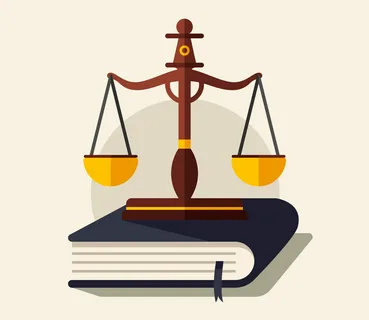Suffering a traumatic injury can be devastating in more ways than one. Having to recover from the injury itself is a harrowing experience in itself. Unfortunately, it comes with a host of medical expenses, potential property damage, lost wages due to being unable to work, and much more. The added stress of the financial burden atop your injuries can make matters far worse.
After being injured, you might feel reluctant to consider hiring a Port St. Lucie personal injury lawyer. It would make sense to not want to take on more expenses to deal with when you are already facing a mountain of bills. Fortunately, most personal injury lawyers work on a contingency fee basis, especially in Florida.
Many people are unaware of the concept of a contingency-fee structure and choose to avoid seeking legal help with their personal injury cases. This post will be your guide to understanding the contingency fee structure so that you can understand why it might be possible for you to consider hiring lawyers in your case.
What Is A Contingency Fee?
A contingency fee is a payment you disburse to your lawyer if your case involves receiving a certain amount in monetary compensation. This fee structure is commonly practiced in personal injury law where you are likelier to be rewarded money in damages. The amount you pay to your lawyer in legal fees for their help in ensuring that you win the compensatory amount is contingent on their ability to deliver successful results – hence the name ‘contingency’ fees.
The exact payment amount for contingency fees can vary based on multiple things related to the case. The law firm you choose to work with and the area can also be a factor that makes a difference here. Here are a few of the reasons that can impact the exact amount you pay in contingency fees to your lawyer:
- The type of case
- The risk and complexities of the case
- Litigation expenses
- The firm’s reputation in the legal industry
- The time taken to bring the case to a conclusion
Riskier and more complex cases are always a challenge because they come without the guarantee of a desirable outcome for you. Lawyers tend to charge a higher contingency fee for cases like this. Most lawyers charge a third of the amount won in the settlement, but it could be as high as 40% if the case is risky and warrants a greater effort from your attorney.
Suppose that your case was straightforward and required little effort for the lawyer due to the simplicity of the circumstances. In that scenario, the right personal injury lawyers could also charge lower than a third of the amount in contingency fees.
Litigation expenses are something that you will be responsible for, including court filing and processing fees, travel expenses, and any necessary payments to expert witnesses to come in and assist on the case. The law firm working with you on the case will deduct the contingency fee from the settlement you win.
How Do You Set Up Contingency Fees?
The exact contingency-fee structure can depend on your lawyer’s standard practices with personal injury cases and your preference. They could give you the option of setting up an hourly contingency or a mixed-hourly contingency.
Suppose you go with the first option. In that case, the attorney working on your case will track the number of hours they have spent working on your case. A successful outcome of the case that results in a sizeable settlement for you means that your attorney will charge a fee based on the predetermined rate and the amount of time they spent on your case.
Let’s suppose you go for the second option. A mixed-hourly contingency structure could involve the lawyer asking a small portion of their hourly rate while they work on it. They will receive the rest if and when your case comes to a desirable conclusion and you win a sizeable settlement.
Whenever you work with a personal injury lawyer with a contingency-fee structure, it is crucial to have the entire agreement for the set amount written down. Do not agree to bring them on the case without signing a contract that states the amount and fee structure you agreed with.
Contingency fees are an excellent solution for people who do not have the money to pay for legal assistance upfront. Of course, it does not mean that a contingency fee is always a great solution. There might be straightforward cases where it would be more feasible for you to pay a flat hourly rate instead of a contingency fee.
Before you agree to sign any contract, it is always a good idea to have a consultation with a personal injury lawyer to discuss everything in detail. Many personal injury attorneys offer free first consultations, making it easier for potential clients to determine whether it would be worth the cost to work with them on their cases.
Final Thoughts
Do you need the legal advice of an attorney? You should know that not all cases qualify for contingency fees. Family law and criminal law practices do not allow attorneys to use a contingency-fee structure to render their services because certain scenarios could incentivize wrongful behavior to ensure that lawyers collect a bigger paycheck.
Fortunately, contingency fee is completely eligible in personal injury law. The contingency fee must be agreed upon by the lawyer and client in writing. We advise reading this web page by the Florida Bar to get a detailed understanding of the contingency-fee structure.
If your case qualifies for the contingency fee structure and you require legal assistance in a personal injury case, consider contacting an Injury Lawyer. Their team of Port St. Lucie personal injury lawyers is experienced in dealing with a wide range of personal injury cases. They can help you become financially whole again after your injuries while alleviating you from the financial burden of legal fees that you would otherwise have to pay out-of-pocket.











